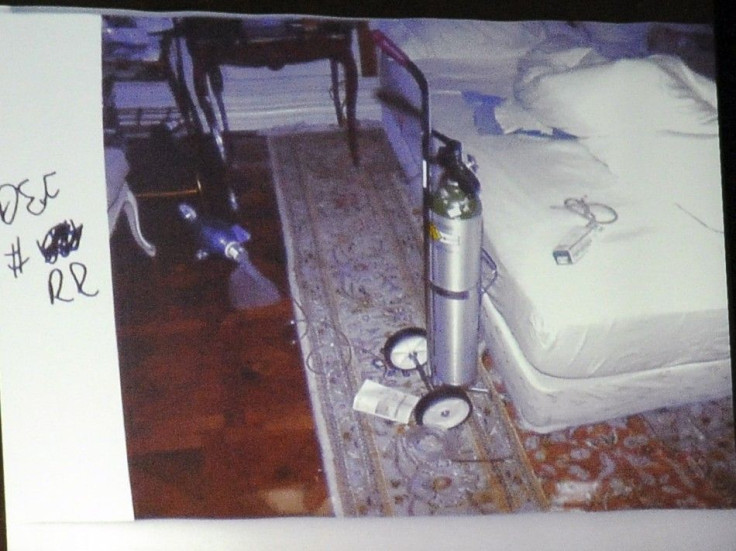Michael Jackson Could Not Have Killed Himself, Autopsy Doctor Testifies

It is highly improbable that Michael Jackson caused his own death by self-administering the anesthetic propofol, the doctor who performed his autopsy testified in the Los Angeles court Tuesday.
The circumstances from my point of view do not support self-administration of propofol, Dr. Christopher Rogers, the Los Angeles County chief of forensic medicine, told the jurors on the eleventh day of the involuntary manslaughter trial of Jackson's physician, Dr. Conrad Murray.
Murray is being portrayed by the prosecution as an incompetent doctor whose gross negligence in administering propofol -- a risky drug which requires close monitoring of patient in controlled medical settings -- led to Jackson's death in 2009. The defense attorneys assert that the pop star caused his own death by taking a drug overdose, including propofol, after his doctor left the room.
Rogers said he believed Jackson's death was homicide because he found it highly unlikely that the singer would have had enough time to administer an extra dose of propofol and stop breathing, all in the two minutes Murray told police he was not present in the room.
You'd have to assume that Mr. Jackson woke up, although he was at least to some extent under the influence of propofol and other sedatives, he was able to somehow administer propofol to himself, Rogers testified, the Los Angeles Times reported.
But under defense cross-examination, Rogers agreed that the amount of propofol present in Jackson's bloodstream after death was too high to have been caused by the infusion of 25 milligrams that Murray told the police he administered.
The court was shown photographs of Jackson's bedroom that day, and Rogers admitted during cross-examination that the drug in the injection site, just below the singer's knee, was well within his reach.
Rogers said there was a lack of dosing equipment in Jackson's room, which meant Murray could have inaccurately estimated the amount of propofol for injection.
The problem that Mr. Jackson was having was that he couldn't sleep, and it's not appropriate to administer propofol in that situation. The risk outweighs the benefit, Rogers said, according to Reuters.
The prosecutors have argued that Murray gave a follow-up dose of the drug with a continuous drip injected though an IV system.
Murray was on the phone or writing an email for more than 45 minutes before police were told he found Jackson's lifeless body, according to witnesses and the phone records verified so far.
On the third week of the trial, the court was shown the naked, thin body of Jackson on the autopsy table, which made his fans in the courtroom sob. Jackson's family had left before the autopsy evidence was presented.
© Copyright IBTimes 2024. All rights reserved.












